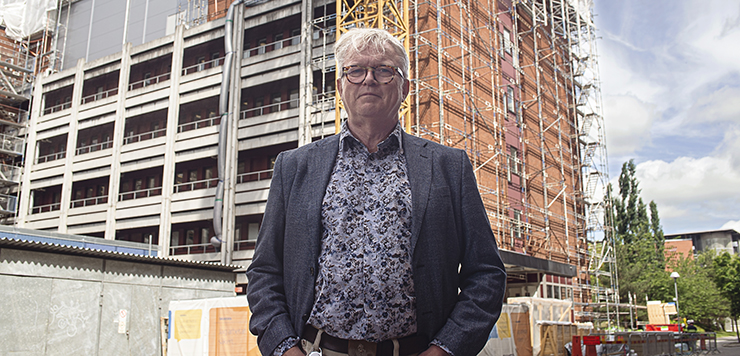Centre for ATMPs is under development at Skåne University Hospital

The medicines are called advanced therapeutic medicinal products (ATMPs). These are medicines that are based on genes, tissues or cells. They offer ground-breaking new opportunities for the treatment of disease. Treatment with ATMPs may involve a one-time treatment that is expected to provide a lasting effect. ATMPs can also be an alternative for, for example, cancer patients, when all other treatment options have been exhausted.
Skåne University Hospital already conducts one ATMP treatment for certain types of hard-to-cure and advanced forms of cancer when you –simply put – reprogram the immune system to identify and destroy tumour cells.
“The goal is to develop more such treatments and medicines. ATMPs require large investments, but the long-term gains can be enormous. Pharmaceutical manufacturing is only getting more expensive and the medicines that are developed are not always very accurate. With ATMP, we get tailor-made treatments that hopefully will be able to cure or reverse the course of diseases where there is currently no treatment”, says Stefan Jovinge, Head of Research at Skåne University Hospital since September 2021.
Renovating premises
Skåne University Hospital is currently renovating premises in Lund, Sweden, where the new centre for ATMPs will be located. By the start of 2023, construction of cleanrooms and premises for manufacturing and preparing ATMPs will start. But already in the autumn of 2022, the first major clinical study will begin within the framework of the centre. The study will investigate the effects of an ATMP treatment against Parkinson's disease.
“The fact that the premises of Skåne University Hospital and Lund University are so close to each other is an important prerequisite for being able to conduct this type of research. Lund is one of the few places in Sweden where the right conditions are in place”, Stefan Jovinge says.
Patient data a key factor
He is convinced that ATMPs will play a major role in future research and healthcare. Another decisive factor is how patient data can be collected in as patient-safe a manner as possible.
“I am tasked with finding ways forward for how we can create so-called digital data lakes, where we have as free access to patient data as possible - without breaching patient confidentiality or violating the General Data Protection Regulation principles. For research, data lakes would mean access to entire patient groups when we conduct studies, instead of selected subgroups as today. With a larger data base, you get a truer picture of reality and hopefully more accurate and less expensive research results.”
Stefan Jovinge points out that freer access to patient data would also lead to more accurate control and monitoring of treatment results in healthcare.
More patients could be included in studies
Another goal of the research at Skåne University Hospital is that all patients should be offered to participate in a clinical study. Patient inclusion in studies places high demands on confidentiality and patient safety: the researchers must first and foremost always protect the patient's privacy. But Stefan Jovinge believes that the benefits outweigh the possible challenges.
“I consider it a privilege for a patient to be asked to participate in a study and an opportunity to help healthcare become better. And it is also a privilege for healthcare to help more patients get better thanks to research”, he concludes.

